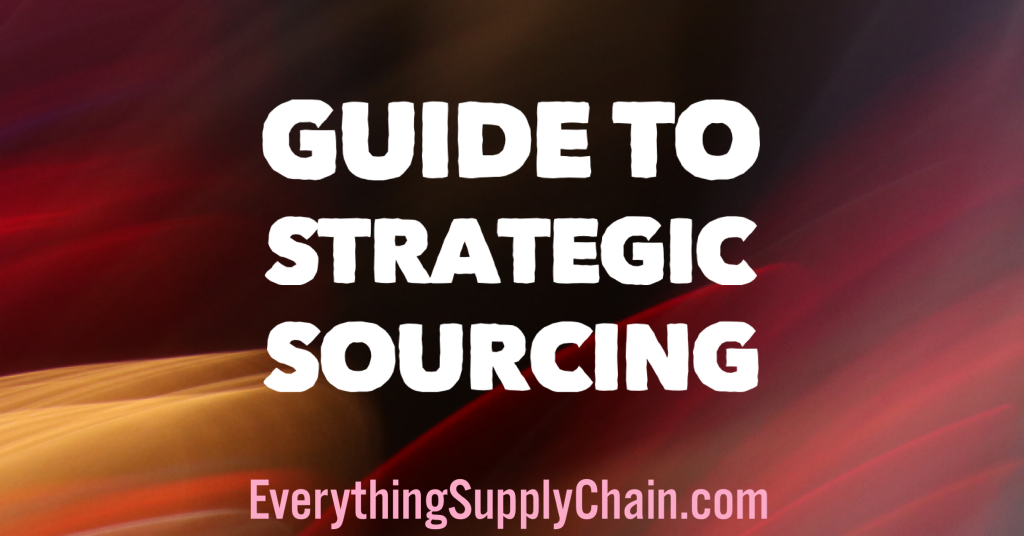Your Guide to Negotiations.
Introduction
Welcome to Your Guide to Negotiations! This guide is designed to help you understand the basics of negotiation and how to use it to your advantage. We will cover topics such as the different types of negotiation, the importance of preparation, and the strategies and tactics you can use to get the best deal. We will also discuss the importance of communication and how to handle difficult negotiations. With this guide, you will be able to confidently and effectively negotiate for the best outcome.
The Basics of Negotiations: What You Need to Know
Negotiations are an important part of business and life. Whether you are negotiating a salary, a contract, or a purchase, understanding the basics of negotiations can help you get the best outcome. Here are some key points to keep in mind when negotiating:
1. Know Your Goals: Before entering into any negotiation, it is important to know what you want to achieve. Make sure you have a clear understanding of your goals and objectives, and be prepared to explain them to the other party.
2. Do Your Research: Research the other party and the issue at hand. Knowing the facts and figures can help you make a stronger case for your position.
3. Listen and Ask Questions: Listening is an important part of any negotiation. Ask questions to gain a better understanding of the other party’s position and to ensure that you are on the same page.
4. Be Flexible: Negotiations are rarely one-sided. Be prepared to compromise and be willing to make concessions in order to reach an agreement.
5. Be Assertive: Don’t be afraid to stand up for yourself and your position. Be firm but polite, and don’t be afraid to walk away if the other party is not willing to meet your needs.
6. Be Prepared to Walk Away: If the other party is not willing to meet your needs, be prepared to walk away. This will show that you are serious about your position and that you are not willing to settle for less than what you want.
Negotiations can be a difficult process, but understanding the basics can help you get the best outcome. By following these tips, you can ensure that you are prepared and ready to negotiate.
How to Prepare for a Negotiation: Tips and Strategies
Negotiations are an important part of business and personal life. Preparing for a negotiation is essential to ensure a successful outcome. Here are some tips and strategies to help you prepare for a negotiation.
1. Research: Research the other party and the issue at hand. Understand their interests, needs, and goals. This will help you to develop a strategy that meets both parties’ needs.
2. Set Goals: Set clear goals for yourself and the other party. Make sure your goals are realistic and achievable.
3. Know Your Limits: Know your limits and be prepared to walk away if the other party is not willing to meet your needs.
4. Prepare Your Argument: Prepare your argument in advance. Think about the points you want to make and how you will present them.
5. Listen: Listen carefully to the other party and be open to their ideas. This will help you to understand their perspective and come to an agreement.
6. Be Flexible: Be flexible and willing to compromise. Negotiations are about finding a solution that works for both parties.
7. Be Assertive: Be assertive but not aggressive. Make sure your needs are heard and respected.
8. Practice: Practice your negotiation skills in advance. This will help you to be more confident and prepared during the actual negotiation.
By following these tips and strategies, you can be better prepared for a successful negotiation. Good luck!
The Art of Negotiating: Understanding the Psychology of Negotiations
Negotiations are an essential part of business and life. Understanding the psychology of negotiations can help you become a better negotiator and get the best possible outcome for both parties.
The first step in understanding the psychology of negotiations is to recognize that each party has different interests and goals. It is important to understand the other party’s interests and goals in order to be able to negotiate effectively. It is also important to understand the other party’s motivations and how they may be influencing their decisions.
The second step is to understand the power dynamics of the negotiation. Who has the most power in the negotiation? Who has the least? Understanding the power dynamics can help you determine how to best approach the negotiation.
The third step is to understand the different types of negotiation tactics. There are many different tactics that can be used in negotiations, such as making concessions, using leverage, and making offers. Understanding the different tactics and how to use them effectively can help you get the best outcome for both parties.
The fourth step is to understand the importance of communication. Effective communication is essential in negotiations. It is important to be clear and concise when communicating your interests and goals. It is also important to listen to the other party and understand their interests and goals.
The fifth step is to understand the importance of trust. Trust is essential in negotiations. It is important to build trust with the other party in order to be able to negotiate effectively.
By understanding the psychology of negotiations, you can become a better negotiator and get the best possible outcome for both parties. Negotiations are an essential part of business and life, and understanding the psychology of negotiations can help you become a better negotiator and get the best possible outcome for both parties.
The Benefits of Negotiations: Why You Should Negotiate
Negotiations are an important part of life, whether it is in business, personal relationships, or even in everyday interactions. Negotiations can help to create win-win situations, build relationships, and create better outcomes for all parties involved. Here are some of the benefits of negotiating:
1. Improved Outcomes: Negotiations can help to create better outcomes for all parties involved. By discussing the needs and interests of each party, it is possible to come to an agreement that is beneficial to everyone. This can help to avoid costly disputes and create a more positive outcome for all involved.
2. Relationship Building: Negotiations can help to build relationships between parties. By discussing the needs and interests of each party, it is possible to come to an agreement that is beneficial to everyone. This can help to create a more positive relationship between the parties, which can be beneficial in the long run.
3. Increased Understanding: Negotiations can help to increase understanding between parties. By discussing the needs and interests of each party, it is possible to come to an agreement that is beneficial to everyone. This can help to create a better understanding between the parties, which can be beneficial in the long run.
4. Improved Communication: Negotiations can help to improve communication between parties. By discussing the needs and interests of each party, it is possible to come to an agreement that is beneficial to everyone. This can help to create a better understanding between the parties, which can be beneficial in the long run.
Negotiations can be a powerful tool for creating better outcomes, building relationships, and improving communication. By discussing the needs and interests of each party, it is possible to come to an agreement that is beneficial to everyone. This can help to create a better understanding between the parties, which can be beneficial in the long run.
Negotiating in Difficult Situations: Strategies for Success
Negotiating in difficult situations can be a daunting task. However, with the right strategies, it is possible to achieve successful outcomes. Here are some tips to help you navigate difficult negotiations:
1. Prepare: Before entering into a negotiation, it is important to do your research and be prepared. Understand the other party’s interests and objectives, and be ready to discuss potential solutions.
2. Listen: Listening is key to successful negotiations. Make sure to pay attention to the other party’s needs and interests, and be open to their ideas.
3. Be Flexible: Be willing to compromise and be flexible in your approach. This will help you reach a mutually beneficial agreement.
4. Be Assertive: It is important to be assertive and stand your ground when necessary. Make sure to communicate your needs and interests clearly and firmly.
5. Be Respectful: Negotiations can be emotionally charged, but it is important to remain respectful and professional.
6. Take Breaks: If the negotiations become too heated, take a break to cool off and regroup.
By following these strategies, you can successfully navigate difficult negotiations and reach a successful outcome.
The Power of Negotiations: How to Get What You Want
Negotiations are an essential part of life. Whether it is in business, personal relationships, or even everyday interactions, the ability to negotiate effectively can be a powerful tool for getting what you want.
Negotiations involve two or more parties coming together to reach an agreement. The goal is to reach a mutually beneficial outcome that satisfies the needs of all parties involved. To do this, each party must be willing to compromise and make concessions.
The key to successful negotiations is to be prepared. Before entering into negotiations, it is important to have a clear understanding of what you want and what you are willing to give up in order to get it. It is also important to understand the other party’s interests and objectives.
Once you have a clear understanding of your own interests and objectives, it is important to be assertive and confident in your negotiations. Be sure to communicate your needs and interests clearly and concisely. It is also important to be flexible and open to compromise.
When negotiating, it is important to listen carefully to the other party and to be willing to consider their point of view. It is also important to be patient and to take your time. Negotiations can take time and it is important to be willing to work through any disagreements or misunderstandings.
Finally, it is important to be willing to walk away if necessary. If the other party is not willing to meet your needs or if the negotiations are not going in the direction you want, it is important to be willing to walk away and look for other options.
Negotiations can be a powerful tool for getting what you want. By being prepared, assertive, and flexible, you can increase your chances of success and get the outcome you desire.
Conclusion
The Guide to Negotiations is an invaluable resource for anyone looking to improve their negotiation skills. It provides a comprehensive overview of the negotiation process, from the initial preparation to the final agreement. It also offers practical advice on how to handle difficult negotiations, as well as tips on how to maximize the outcome of any negotiation. With its clear and concise explanations, this guide is an essential tool for anyone looking to become a better negotiator.
Guide to Autonomous Vehicles and Supply Chain.
Digital Transformation in Supply Chain
Artificial Intelligence in Supply Chain Predictive Analytics.
Guide to ERP Implementations – The Good and Bad.












No Responses
[…] Guide to Negotiations. […]
[…] Guide to Negotiations. […]